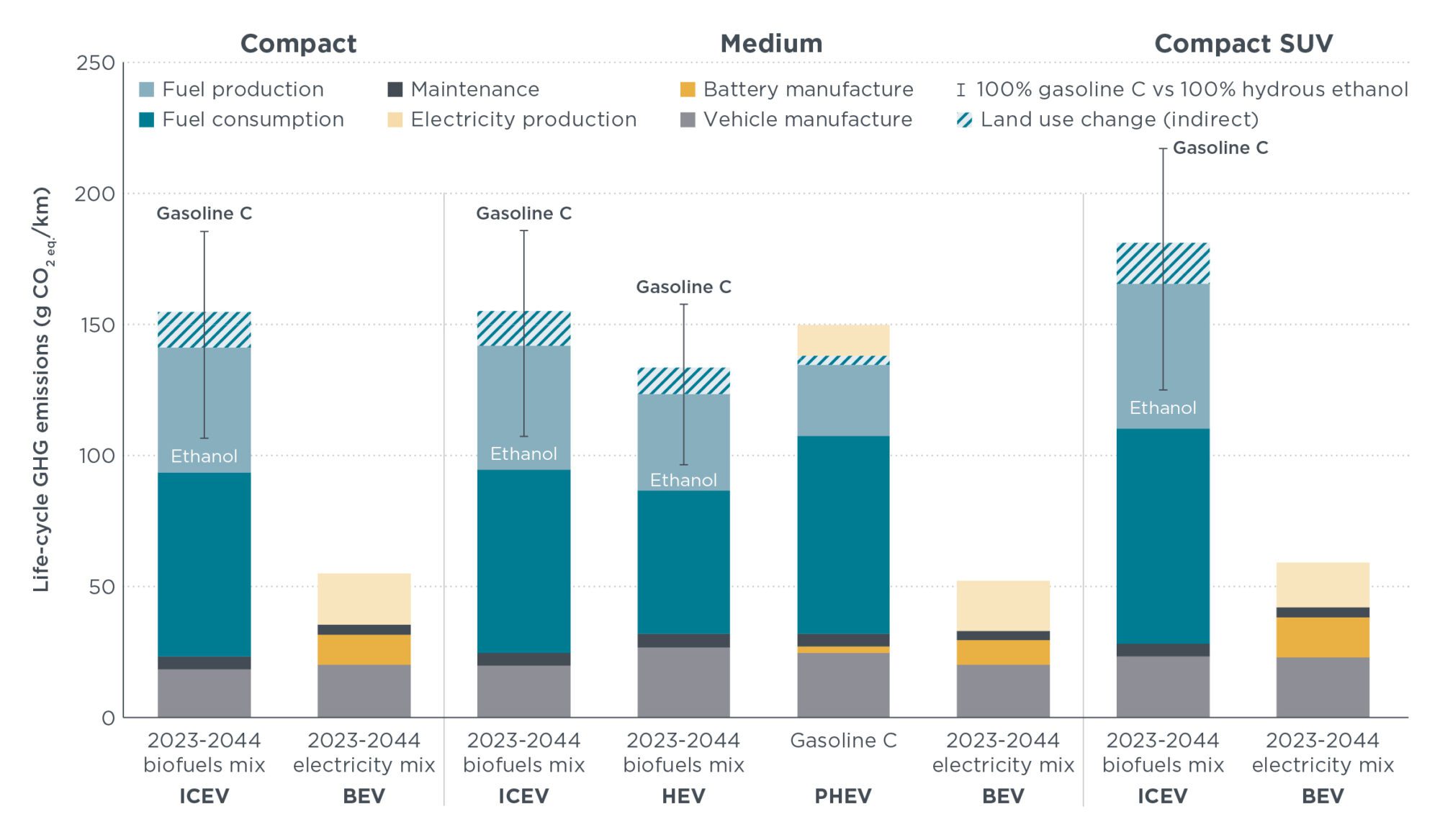The transportation sector in Brazil stands out due to its strong focus on biofuels, with most passenger cars being gasoline-ethanol flex-fuel vehicles (92% of sales in 2020) operating on a high share of sugarcane-based ethanol in the average fuel mix. Still, after agriculture and land use change, the transport sector is the third largest source of GHG emissions in the country. Reaching Brazil’s target of net-zero greenhouse gas (GHG) emissions by 2050 will thus depend on a swift reduction of GHG emissions in this sector.
This study evaluates which combustion engine and electric power train types allow the largest reduction of GHG emissions from passenger cars. The life-cycle assessment (LCA) includes the emissions of vehicle and battery manufacturing, as well as fuel combustion, fuel and electricity production, and maintenance. The study compares flex-fuel internal combustion engine vehicles (ICEVs) and battery electric vehicles (BEVs) using average new vehicles across the compact, medium, and compact SUV segments. Where possible, the emissions of hybrid electric vehicles (HEVs), plug-in hybrid electric vehicles (PHEVs), and hydrogen fuel cell electric vehicles (FCEVs) are also assessed.
The study finds that the life-cycle emissions of flex-fuel ICEVs vary largely when operated on gasoline C, on ethanol, or on a mix of the two fuels. This implies that for a representative assessment of their emissions, the market average shares of gasoline C and ethanol need to be considered. With the corresponding average electricity mix, current BEVs emit about one third of the life-cycle emissions of gasoline-ethanol flex-fuel ICEVs and future models can approach zero emissions. Hydrogen FCEVs show a similar reduction in GHG emissions, but only when operated on renewable electricity-based (green) hydrogen. Hybrids and plug-in hybrids, in contrast, only show a limited reduction in GHG emissions and do not reach zero emissions in the long term. These findings reflect the same trends observed in previous ICCT analyses of vehicles in China, Europe, India, and the United States.

Based on these findings, this study also presents a series of policy recommendations for decarbonizing the transport sector. In particular, ambitious targets in the CO2 emission standards of the upcoming Green Mobility and Innovation Program – PROMOVI (formerly Rota 2030), could lay the groundwork for continuously increasing electric vehicle production in Brazil. This would help to align the transport sector with the government’s climate targets. Further, including land use change emissions in the RenovaBio biofuels program would help to improve the sustainability of ethanol.

